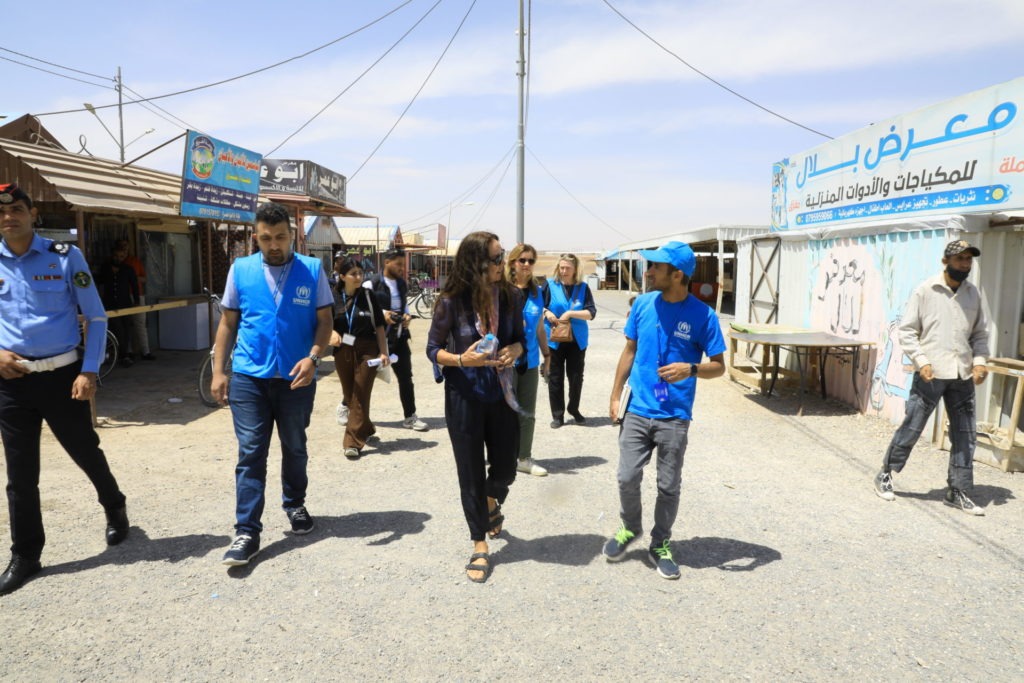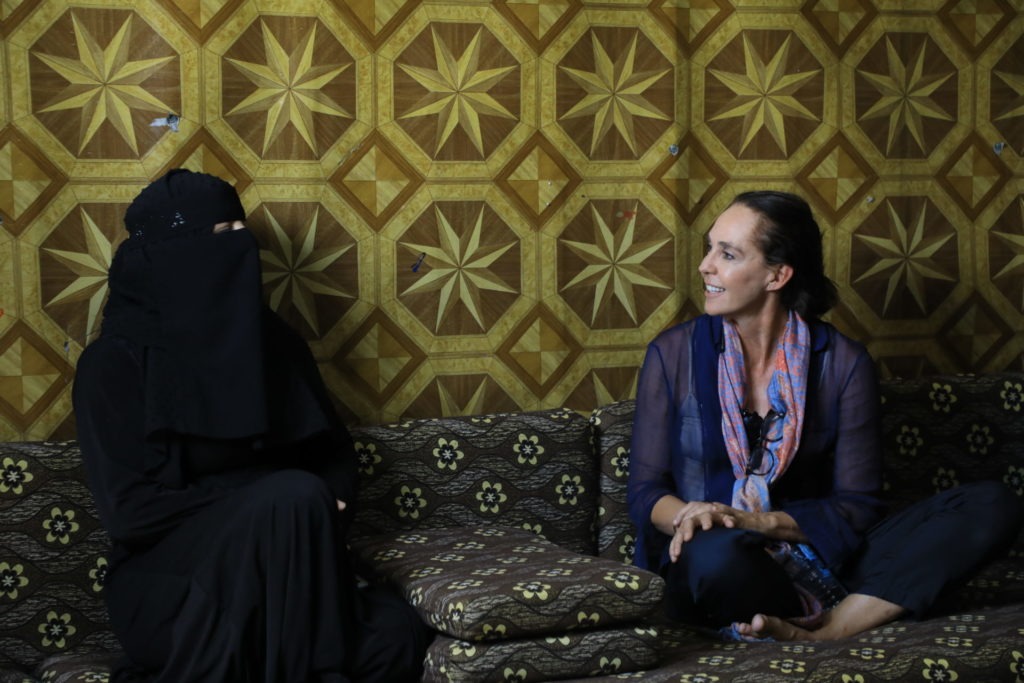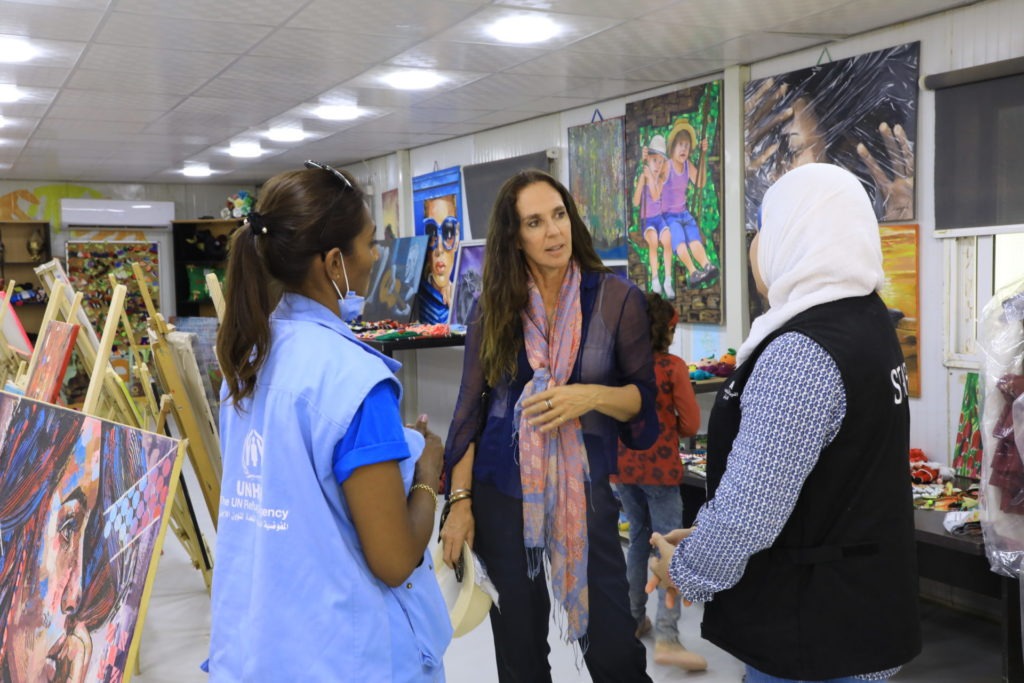Entrepreneur Janine Allis shares what she learned from refugee women living in Jordan, who’d fled the war in Syria, more than 11 years ago.
I am an ordinary girl from the suburbs of Melbourne who built a global business.
It was something my beloved gran couldn’t understand. Not the size of the business per se, but the fact her granddaughter – in comparison to a grandson – was in business at all. She assumed I must work for the part-time male bookkeeper.
My gran got her own short-lived taste of financial independence during World War Two when the men disappeared and she started working with her friends in an ammunition factory. It struck me what an unusual time this must have been; you start making your own money and feeling the freedom that it brings, only to be told to get back in your box when the men come home.
The system certainly isn’t perfect for Australian women in 2022, but we’ve come a long way since Gran’s day.
I recently got back from visiting refugee women living in Jordan, most of whom had fled the war in Syria. More than 11 years after the war began, the chance of them being able to return anytime soon is still remote.

There was 47-year-old Malak. She was a teacher in Syria who, during the early part of the war, had worked helping traumatised children.
And there was Fatima, a 53-year-old mother of four who, with the help of the UN Refugee Agency, had established a successful cooking business out of her home. She dreams of expanding into supermarkets across Jordan and into other countries.
There is a misconception people have when they look at refugees, thinking of them as “others.” But I could see myself in these women, as a mother and as a businesswoman.
I started Boost Juice in my home while juggling young children. It now has more than 580 stores across 13 different countries and counting, but back then it was work which allowed me to be at home when my eldest son walked in from school at 3:30pm.
The situation for refugees living in Jordan is no longer considered a humanitarian crisis, and the focus for UNHCR has shifted to connecting people with economic opportunities. The small things that can make such a huge difference in these women’s lives blew my mind.
For Fatima and her small cooking business, it was a fridge which was a game changer. She was suddenly able to expand and take on more customers, and even staff – giving employment opportunities to other women. UNHCR and its partner helped her get the licence required to start selling her delicious Syrian food.
As Fatima says, being able to work makes a person feel valued in society. The income has also helped her give her daughter an education. Just like me, these are women who are driven to give their children the best possible opportunities.

It’s taking innovation, encouragement and the generosity of donors in countries like Australia to make this happen, to shatter the glass ceiling for women who didn’t think they could do this. The looks on their faces says it all: “I can do this, I can have a skill, I can be self-sufficient.” They just need a little help. And that’s something Australian women can help with. If we all helped one refugee woman, it would make an incredible difference.
In Jordan there are 700,000 refugees registered with UNHCR. Globally, the number of displaced people is more than 100 million. It’s sometimes easy for our eyes to glaze over when we hear figures like that, but now I will always think of women like Fatima and Malak. Women who are determined to make something of their lives, if they are only given a chance.
Only two generations divided the life I have been able to lead with the more limited opportunities afforded to my gran. That is part of the reason I feel so passionate about helping women break free from circumstances which are holding them back from reaching their potential, or at least from leading a dignified life. There is so much we can do to empower them towards greater confidence, self-reliance and financial freedom.


